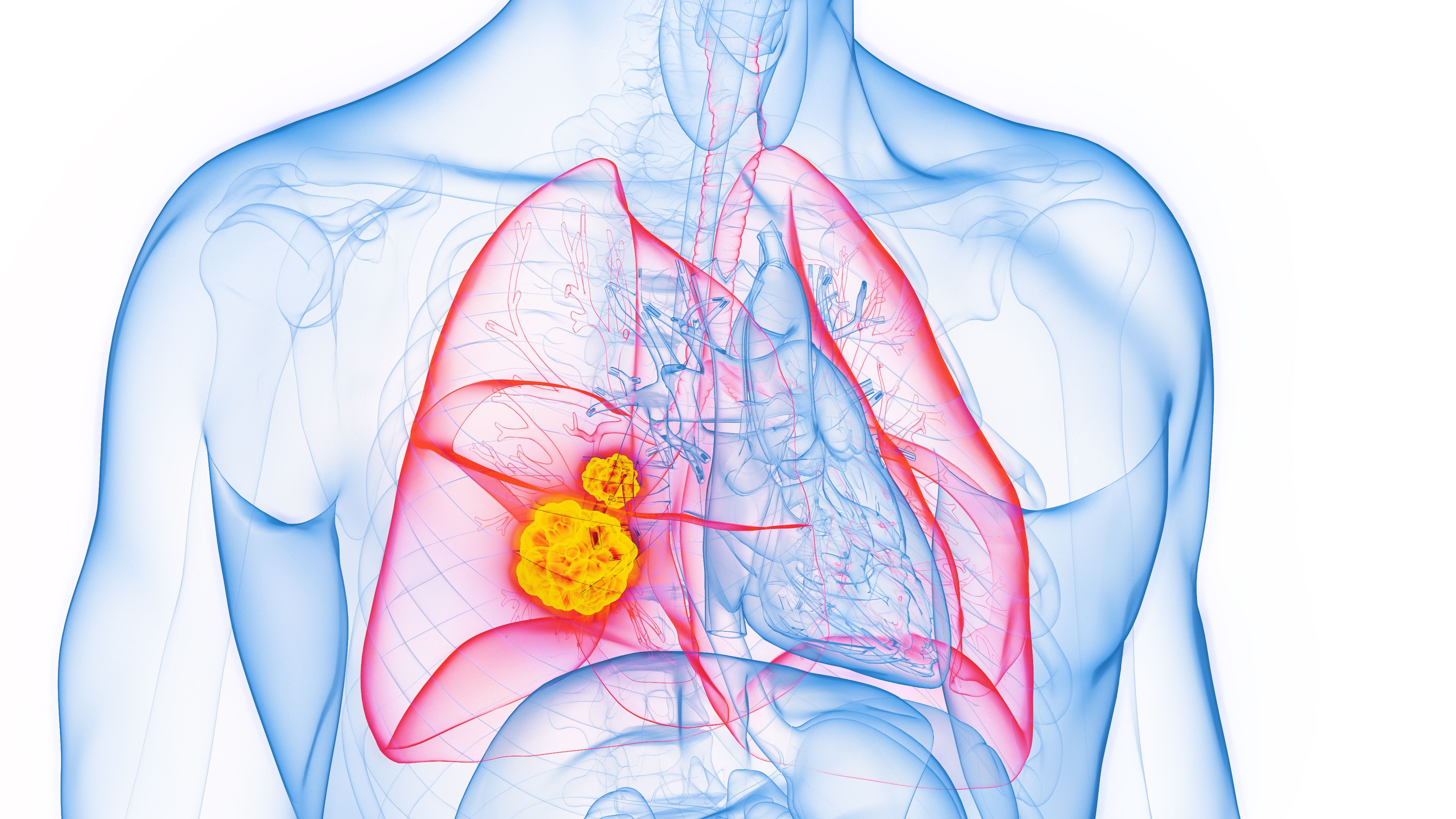Using Inductively Coupled Plasma Mass Spectrometry to More Efficiently Analyze Circulating Tumor Cells
To more efficiently analyze circulating tumor cells (CTCs) in clinical whole blood samples, a team of scientists from Chengdu, China, created a method that utilizes techniques like inductively coupled plasma mass spectrometry (ICP–MS) determination, publishing their work in Analytical Chemistry (1).
3D rendered Medical Illustration of Male Anatomy - Lung Cancer. | Image Credit: © SciePro - stock.adobe.com

CTCs are tumor cells that break off from primary tumors and invade the blood circulation system (2). Analyzing these cells in whole blood samples can be beneficial for clinical tumor liquid biopsy. For this study, the scientists developed a CTCs extraction technique while performing homogeneous inductively coupled plasma mass spectrometry (ICP–MS) determination of CTCs in lung cancer clinical samples. These extractions were based on selective recognition reactions and prereduction phenomena.
The extraction process included a step-by-step centrifugation, followed by the pretreatment of the whole blood samples. The entire process took less than 45 minutes, the researchers wrote. This was followed by a three-stage signal amplification system, which involved catalytic hairpin assembly (CHA), selective recognition for C–Ag+–C structures and Ag+ of copper sulfide nanoparticles (CuS NPs), and prereduction of Hg2+ through ascorbic acid (AA). This was constructed using mucin 1 as the CTCs marker and the aptamer for identification probes.
Under optimal conditions, ICP–MS detection limits were 0.3 ag/mL for mucin 1 and 0.25 cells/mL for A549 cells. 58 clinical CTC samples were quantitatively analyzed at a time, with results proving consistent with clinical CT images. Moreover, the area under the curve (AUC) value of the receiver operating characteristic (ROC) curve was 0.957. This provided a specificity of 100% and a sensitivity of 91.5% for the assay.
Reference
(1) Wang, Y.; Chen, X.; Shen, X.; He, Y.; Zhan, Z.; Liu, C.; Xie, Y.; Lin, F.; Huang, K.; Chen, P. Simplified Rapid Enrichment of CTCs and Selective Recognition Prereduction Enable a Homogeneous ICP-MS Liquid Biopsy Strategy of Lung Cancer. Anal. Chem. 2023, 95 (28), 14244–14252. DOI: https://doi.org/10.1021/acs.analchem.3c02302
(2) Deng, Z.; Wu, S.; Wang, Y.; Shi, D. Circulating tumor cell isolation for cancer diagnosis and prognosis. eBioMedicine 2022, 83, 104237. DOI: https://doi.org/10.1016/j.ebiom.2022.104237
New Method Explored for the Detection of CECs in Crops Irrigated with Contaminated Water
April 30th 2025This new study presents a validated QuEChERS–LC-MS/MS method for detecting eight persistent, mobile, and toxic substances in escarole, tomatoes, and tomato leaves irrigated with contaminated water.

.png&w=3840&q=75)

.png&w=3840&q=75)



.png&w=3840&q=75)



.png&w=3840&q=75)


